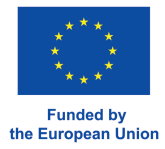PhD Position in Visual Interface Design
Click me to send an online application
The Department of Mathematics and Computer Science at the University of Southern Denmark, Odense, invites applications for a PhD position focusing on visual interface design in the context of an EU-funded MEMORISE project. This project is funded by the European Union’s Horizon Europe research and innovation program under grant agreement no 101061016.
The proposed starting date is 1 July 2023. The hired candidate will be part of the Centre for Visual Data Science as well as the Data Science and Statistics Group. Application deadline: 19 May 2023.
Candidate Profile
We are looking for highly motivated students interested in designing and developing visual interfaces in an interdisciplinary project with colleagues having backgrounds in related fields of computer science (natural language processing, machine learning) and humanities (history, memory). A major aspect will be the iterative development of solutions together with experts from memorial sites and end users. The ideal candidate has an M.Sc. in Computer or Data Science and has already gained experience in collaborating with experts from other domains. A minimum requirement is acquired experience in at least one of the following areas:
- Information Visualization
- Human-computer Interaction
- Interface Design
- Immersive Analytics.
Experience in writing scientific publications is a plus, and fluency in English is required.
The position is financed by the European research project MEMORISE: “Virtualisation and Multimodal Exploration of Heritage on Nazi Persecution”, which focuses on the development of new digital tools to keep memories of Nazi persecution alive. The candidate will mainly work in the context of a work package focusing on visualization, narration, and learning. The tasks include developing a platform for the quantitative visual exploration and qualitative analysis of historical materials related to Nazi persecution such as diaries or testimonials. For this purpose, geo-temporal visualizations should arrange those materials in an appropriate historical context, and a novel map-based network should make the Nazi transportation infrastructure visible.
We will further develop a comparative reader to allow the parallel reading of Nazi persecution experiences, and we will explore new ways of storytelling enabled for the first time by AI-based services tailored to the users’ own off-site and on-site experiences. This includes creating and working with 3D models of memorial sites that will be enriched with memories from eyewitnesses.
For further information on the project, please contact Associate Professor Stefan Jänicke, stjaenicke@imada.sdu.dk.
Application, salary, etc.
Appointment as a PhD Research Fellow is for three years. Employment stops automatically at the end of the period. The holder of the scholarship is not allowed to have other paid employment during the three-year period.
The successful applicant will be employed in accordance with the agreement on salaried PhD scholars between the Ministry of Finance and AC (the Danish Confederation of Professional Associations). Please check the links for more information on salary and taxation.
The successful candidate will be enrolled at this university in accordance with faculty regulations and the Danish Ministerial Order on the PhD Programme at the Universities (PhD order).
The University wishes our staff to reflect the diversity of society and thus welcomes applications from all qualified candidates regardless of personal background.
The application must be in English and made in the form of a Declaration of Interest including the following:
- A research proposal/description of your approach to the above project (max one page excluding references)
- A letter stating your specific interest, motivation, and qualifications for the project in question (max. two pages) (please attach this under the box “Application form”)
- A detailed CV, including personal contact information
- Copies of diplomas, Bachelor as well as Master’s degree, including transcript of notes/grades
- At least two signed reference letters. Should your referees wish to send their letters directly to us, please have them use e-mail: anc@sdu.dk mentioning your name and the title of the position in the subject line. Please note that these also need to reach us before the deadline.
Shortlisting may be used in the assessment process.
Further information about the Ph.D. study can be found on the homepage of the University.
Applications must be submitted electronically using the link “Apply online”. Attached files must be in Adobe PDF or Word format. Each box can only contain a single file of max. 10 Mb. We strongly recommend that you read How to Apply before you apply.
Incomplete applications and applications received after the deadline will neither be considered nor evaluated. This also applies to reference letters.
Further information for international applicants about entering and working in Denmark.
About the Department and the University
Based in Odense, the Department of Mathematics and Computer Science offers an inclusive and international working environment with state-of-the-art facilities as well as a strong tradition for collaboration across departments and faculties, and with other educational institutions, municipalities, and industries. More than two-thirds of faculty members come from outside of Denmark.
The University of Southern Denmark was founded in 1966 and now has more than 27,000 students, almost 20% of whom are from abroad. It has more than 3,800 employees, and 115 different study programs in the fields of the humanities, social sciences, natural sciences, health sciences, and engineering. Its main campus is located in Odense, the third largest city in Denmark. Odense provides family-friendly living conditions with the perfect combination of a historic city center with an urban feel and yet close proximity to beaches and recreational areas. Its location on the beautiful island of Funen is ideal, with easy access by train or highway to the bigger cities of Aarhus and Copenhagen. As the birthplace of Hans Christian Andersen, Denmark’s famous fairy-tale author, the city is home to a vibrant and creative population that hosts numerous festivals and markets throughout the year.


